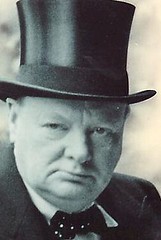Guerra fria? (DMS)

Russia’s rhetorical hostility towards America is reaching levels unseen since the cold war ended. Indeed, even in the late Soviet period anti-American propaganda was less emotional and certainly less sincere than it is today.
There is a fundamental difference in how Russia and America see each other. To Russia, America is more a domestic concern than a foreign one. Russia’s sense of self-esteem has long been inseparable from its relationship with America. A confrontation with the world’s most powerful country restores to Russians a sense of purpose and urgency which had been lost in the post-Soviet years. “America is a crucial part of Russian life and its self-consciousness. America consolidates Russia’s elite and prolongs their existence,” says Lilia Shevtsova of the Carnegie Moscow Centre.
America has no such obsession with Russia. Russia is an important consideration in the country’s foreign policy—no more and no less. In the words of one Russianist in Washington, DC, it is not Russian-American relations that shape world affairs, but world affairs that shape Russian-America relations. Russia matters to America mainly as a factor in other important policy areas such as Iran and Kosovo. As a veto-wielding member of the UN Security Council, Russia has the ability and, perhaps, the inclination to block important international decisions.
One immediate concern is Russia’s position on the independence of Kosovo. Russia vocally opposes a plan by Martti Ahtisaari, a former Finish president, that would see Kosovo become independent under EU supervision. Russia's sympathies for Serbia, which opposes independence for Kosovo, could be enough to produce a veto from Moscow. So Ms Rice is trying, during this trip, to persuade Mr Putin that Russia should merely abstain on the Kosovo resolution when it comes before the UN.
Análise na íntegra aqui.










0 Comments:
Enviar um comentário
<< Home